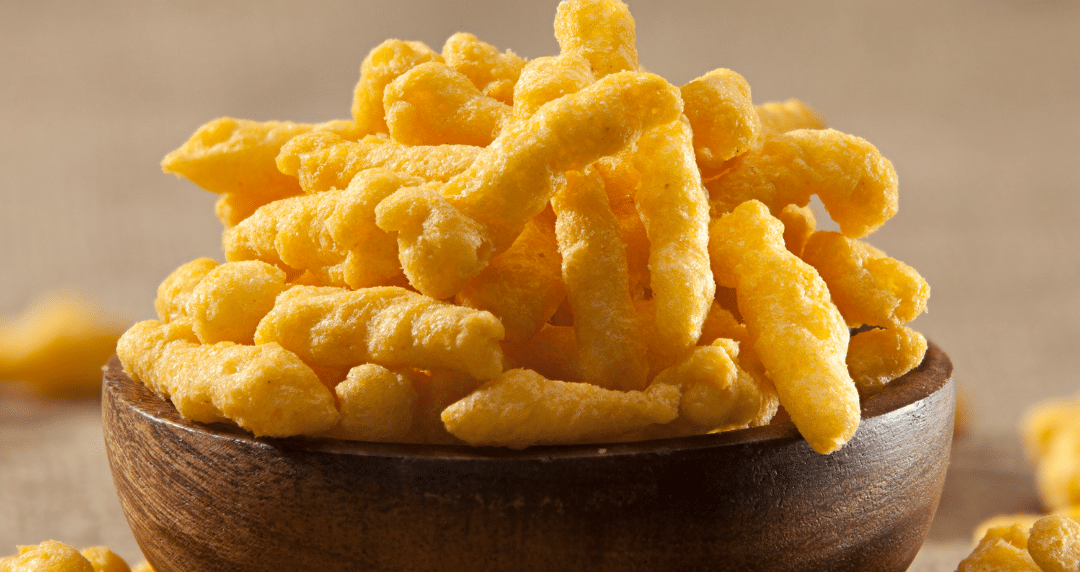Are Cheetos Halal? The question of whether these well-known snack crunchy snacks along with other Cheetos products align with halal dietary guidelines is a common query among Muslims. Let’s delve into this savory dilemma and uncover the verdict on the halal status of Cheetos.
Contrary to popular belief, not all Cheetos are created equal in terms of halal compliance. While some variants may raise concerns for those observing halal dietary laws, it’s essential to navigate the intricate world of food ingredients to determine which Cheetos make the cut.
In the realm of snacking, deciphering the halal status of Cheetos can be a blend of mystery and munchies. With diverse opinions circulating online, it’s crucial to sift through the crunchy noise and uncover the truth behind these cheese-flavored delights.
So, whether you’re a Cheetos connoisseur or a halal-conscious consumer, join us on a flavorful journey as we explore the halal intricacies of everyone’s favorite cheesy snack. Let’s uncover the delicious truth about this crunchy snack and its place in the realm of halal-certified treats.
Understanding Halal Food
Halal food holds a significant place in the lives of many individuals around the world. It’s not just a choice of sustenance, but a way of life for those adhering to Islamic dietary laws. Let’s explore what makes food Halal and the importance of obtaining Halal certification.

What Makes Food Halal?
Halal food refers to items that are permissible for consumption under Islamic law. The term ‘Halal’ itself means permissible or lawful. Halal food must adhere to specific guidelines outlined in Islamic teachings. One of the key principles is the prohibition of consuming pork and its by-products. Additionally, animals used for meat must be slaughtered in a specific manner, where a Muslim recites a blessing during the process. This method ensures humane treatment and proper draining of blood from the animal.
In addition to meat restrictions, Halal food also extends to other categories such as beverages and additives. For example, the consumption of alcohol is strictly forbidden in Islam, making it Haram (forbidden). Therefore, to be considered Halal, food and drinks must not contain any alcohol or intoxicants.
Significance of Halal Certification
Halal certification plays a vital role in the food industry, providing assurance to consumers that the products they are purchasing meet the required Halal standards. Certification involves a thorough inspection of the entire production process, from sourcing ingredients to packaging, to ensure compliance with Islamic dietary laws.
It’s not just about meeting religious requirements but also about transparency and trust. By obtaining Halal certification, food manufacturers demonstrate their commitment to catering to the dietary needs of Muslim consumers. This certification can open doors to new markets and increase consumer confidence in the products being offered.
When purchasing products with a legitimate Halal certification, consumers can have peace of mind knowing that the items have been manufactured following the strict guidelines set forth by Islamic principles, especially in non muslim countries. This certification process involves reputable organizations that uphold the integrity of the Halal standards, ensuring that the food products are truly permissible for consumption in accordance with Islamic law.
Cheetos and Halal Evaluation
Cheetos are a popular snack food loved by many, but the question of whether they are halal often arises among those following Islamic dietary guidelines. Let’s delve into the key aspects regarding Cheetos and their halal status.
Ingredients in Cheetos
When it comes to understanding the halal status of Cheetos, one crucial aspect to consider is the ingredients. Cheetos typically contain ingredients such as enriched corn meal, wheat flour, yeast extract, vegetable oil (corn, canola, and/or sunflower oil), and various seasonings, artificial coloring, and artificial flavors. It’s important to note that the specific ingredients may vary slightly depending on the Cheetos variant you choose. You can check the exact ingredients list on the official Cheetos website to ensure clarity and transparency.
Cheetos use animal enzymes and whey protein concentrate in a few flavors, and these ingredients might not be halal if the animals weren’t slaughtered the right way. If they don’t handle animal rennet and other animal stuff properly, or if they are using pork enzymes.
The manufacturing process and the production method of Cheetos could cause cross-contamination with haram animal products, which will lead Cheetos to become haram as well.
Citric acid is commonly added during production to make things taste better, but sometimes it comes from non-halal stuff, even though it’s mostly made from citrus fruits.
The use of Cheddar cheese and overall, real cheese might also render Cheetos brand haram because because cheeses contain animal ingredients such as rennet.
For example, the CHEETOS® Crunchy Cheese Flavored Snacks contain enriched corn meal, vegetable oil, and cheese seasoning. These ingredients are not inherently non-halal, but it’s essential for individuals to be aware of any specific components that may not align with the halal diet.

Halal Status of Cheetos in Different Regions
The halal status of Cheetos can vary depending on the region in which they are produced and marketed. In some regions, Cheetos may be considered halal, while in others, there might be concerns about certain ingredients or production methods.
According to sources, Cheetos produced by Frito-Lay do not contain explicitly haram (forbidden) ingredients according to Islamic dietary guidelines. However, it’s crucial for individuals to verify the halal certification or status of Cheetos in their specific region to ensure compliance with their dietary preferences.
In regions like Muslim-majority countries such as Saudi Arabia and Indonesia, Cheetos variants produced and marketed there are likely to adhere to halal standards. It is recommended for consumers to check the packaging or official sources for halal certification information to make informed choices.
Remember, when in doubt about the halal status of Cheetos, it’s best to reach out to the manufacturer or relevant certifying bodies for clarification and peace of mind. Being informed and proactive about the food you consume is key to aligning with your dietary requirements and beliefs.
Expert Opinions
Cheetos are a popular snack enjoyed by many, but when it comes to determining if they are halal, seeking advice from expert sources can provide clarity.
Muslim Scholars’ Views on Cheetos
Individual Islamic scholars may have differing opinions on whether Cheetos qualify as halal. Some scholars consider Cheetos permissible based on the ingredients used in their production, while others may advise caution without proper certification. It’s essential for Muslims to consult scholars they trust for guidance on consuming Cheetos within the boundaries of halal dietary practices.
For more insights and discussions on the halal status of Cheetos, you can explore resources like Sahabah Islam QA where various scholars’ viewpoints are shared, shedding light on the nuanced perspectives within the Muslim community.
Insights from Halal Food Authorities
Halal food authorities play a crucial role in providing certifications and guidance on permissible food items for Muslim consumers. Organizations like the American Halal Foundation offer valuable insights into the halal food industry, sharing key data, case studies, and research findings to keep consumers informed.
Exploring research reports and surveys conducted by renowned halal food authorities like IFANCA can provide consumers with a deeper understanding of the halal market landscape and the importance of certified products for those following halal dietary guidelines.
By staying informed about expert opinions from Islamic scholars and halal food authorities, individuals can make informed decisions regarding the consumption of Cheetos while upholding their faith-based dietary requirements.

Guidelines for Muslims Regarding Cheetos Consumption
- Halal Certification Verification: When selecting Cheetos for consumption, look for products with clear halal certification. Trusted halal certifying bodies ensure that the food meets Islamic dietary laws, giving Muslims peace of mind when enjoying snacks like Cheetos.
- Ingredient Scrutiny: Take time to scrutinize the ingredient list of Cheetos to identify any components that may be questionable from a halal perspective. Watch out for additives or flavorings that could potentially be derived from non-halal sources.
- Consultation with Scholars: If in doubt about the halal status of Cheetos or any food item, consider consulting knowledgeable scholars or religious authorities. Their guidance can provide clarity on whether consuming Cheetos aligns with Islamic dietary principles.
By dispelling misconceptions and adhering to halal guidelines, Muslims can make informed choices regarding Cheetos consumption, ensuring their dietary practices align with their faith. Remember to stay vigilant, seek reliable information, and enjoy Cheetos responsibly within the boundaries of halal dietary requirements. For more insights on halal food practices and consumer perspectives, check out Sahabah Islam QA and other informative sources.
Conclusion
Now that you’ve delved into the world of Cheetos and their halal status, it’s clear that the topic is not as straightforward as it may seem at first glance. Many factors come into play when determining whether Cheetos are halal, from the ingredients used to the manufacturing processes involved. Remember, just because a snack doesn’t contain pork products doesn’t automatically make it halal.
Throughout this journey of uncovering the halal status of Cheetos, you’ve explored various perspectives and considerations. From discussions on Reddit about the presence of animal enzymes to articles diving into the specifics of Islamic dietary laws, you’ve gained a deeper understanding of the complexity surrounding this popular snack.
As you continue to navigate the realm of halal food choices, remember the importance of being informed and making conscious decisions that align with your values and beliefs. Whether you enjoy a bag of Cheetos as a guilty pleasure or opt for other halal-certified snacks, the key is to stay curious and mindful of what you consume.
So, next time you reach for that bag of Cheetos, take a moment to ponder its halal status and the fascinating journey of exploration that led you to this point. Happy snacking with newfound knowledge!
For more insights and discussions on halal food choices, be sure to check out relevant resources like r/islam discussions and articles on Crescent Days.
If you are interested in teaching Quran online or want to learn Quran online join us today by sending us an email on our contact form!



